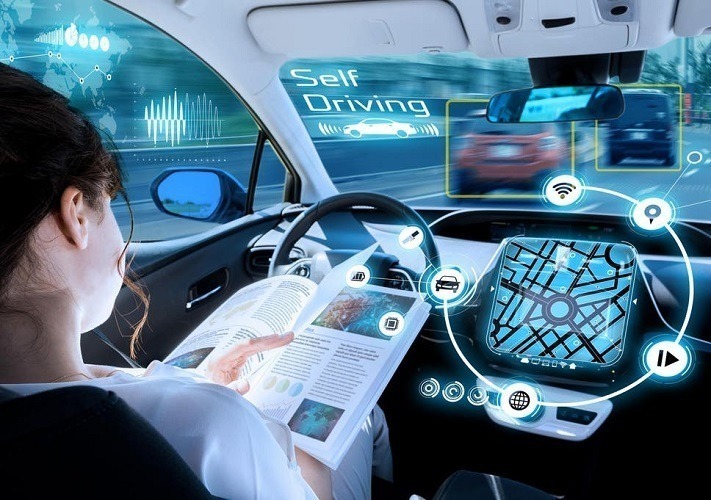Study: Self-driving cars will increase motion sickness…unless we retrain our brains to improve visuospatial skills
 Is brain training the cure for car sickness? (The Sunday Times):
Is brain training the cure for car sickness? (The Sunday Times):
RESEARCHERS from the University of Warwick think they’ve found the cure for motion sickness, a condition to which a third of people are highly susceptible and from which anyone can suffer. The implications could be significant should fully driverless vehicles become a reality, with passengers predicted to be more susceptible to nausea while working, reading or watching screens during travel.
According to the Warwick Manufacturing Group (WMG), who undertook the study, “visuospatial training exercises” can train the brain to reduce motion sickness by more than 50%. These include typical “brain training” exercises such as looking at a pattern of boxes and trying to match it with a rotated version of the same shape, as well as paper folding tasks and more.
The Study:
A novel method for reducing motion sickness susceptibility through training visuospatial ability – A two-part study (Applied Ergonomics).
- Abstract: Everyone can be susceptible to motion sickness (except those with complete loss of labyrinth function) and around one in three are known to be servery susceptible. Motion sickness can be experienced in many domains, including car travel, on a boat, using virtual reality headsets and simulator use amongst others. It is expected that due to potential designs and use cases, self-driving cars will increase motion sickness onset likelihood and severity for many car travellers. Besides medication, there are limited methods through which one can actively reduce their motion sickness susceptibility. This research develops a novel visuospatial training tool and explores the effect of visuospatial training on motion sickness. With a combined sample of 42 participants split between driving simulator trials (n = 20), and on-road trials (n = 22) baseline visuospatial skills and motion sickness were first measured. After a 14-day training period where participates completed 15-min of pen and paper tasks per day, it was found that visuospatial skills improved by 40%. This increase in visuospatial ability was shown to be directly responsible for a reduction in motion sickness by 51% in the simulator (with a 60% reduction in participant dropouts) and a 58% reduction in the on-road trial. This research has successfully identified a new method to reduce motion sickness susceptibility and the impact of these findings have wide reaching implications for motion sickness research, especially in the field of self-driving vehicles.


